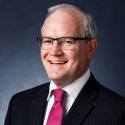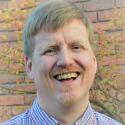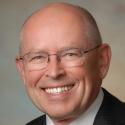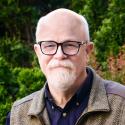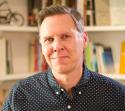2022 Academic Network
- Image
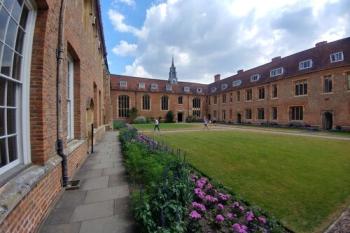
As Christian academics we often experience isolation. Being evangelicals within a secular university or liberal seminary setting isolates us from our peers, while at church, underlying anti-intellectualism may isolate us from our brothers and sisters in Christ. We may experience isolation because of the solitary nature of research, writing, and lecture preparation, or because of our own introverted and reclusive personalities.
At the same time, because of the far-reaching influence of the classroom and higher education in shaping leaders and the next generation, every Christian scholar possesses an outsized potential for multi-generational impact. Our calling is to bring glory to Christ in the university or the seminary where we serve. This is why, as followers of Christ in the academy, we must be intentional about connecting with other like-minded colleagues.
The primary purpose of the ELF Academic Network is to gather together Christian scholars throughout Europe for equipping, united, resourcing, prayer, and accountability. At the 2022 Network, you will be blessed by outstanding presenters. Each one is a recognized scholar who, in their own academic work, is living and modeling what they teach. You will have opportunities to ask questions, discuss issues with your colleagues, and reflect on how these principles should change the way you think, live, and teach.
Prior preparation will be set for all applicants.
Applicants should be teaching or leading in a university, seminary, bible institute, or other post-secondary educational institution or graduate students who hope to serve Christ in the academy. This Network will help academicians from a wide spectrum of disciplines to think about their discipline from a Christian worldview, attain excellence in teaching and research, share Christ with others, and maintain spiritual fervor.
Network Leadership
Network Speakers
Paul Coulter lives in Lisburn, Northern Ireland, with his Chinese Malaysian wife, Gar-Ling, and their two teenage children. He holds degrees in medical genetics, medicine and theology (PhD). Having previously served as a medical doctor, cross-cultural pastor and lecturer in practical theology… Read more
Per Ewert is the director of The Clapham Institute, Sweden’s leading Christian think tank and research institute. His PhD describes the political process which shaped Sweden into the world's arguably most secular-individualistic nation. Per is the author of several books on the Bible,… Read more
Alexander Fink is Director of the Institute for Faith and Science (Institut für Glaube und Wissenschaft) in Marburg, Germany (www.iguw.de). He studied physics at Bayreuth and St. Andrews (UK) universities and received his PhD at the Institute for Biophysics at… Read more
Wayne Grudem is Distinguished Research Professor of Theology and Biblical Studies at Phoenix Seminary in Arizona. He is a graduate of Harvard (BA), Westminster Seminary-Philadelphia (MDiv, DD), and the University of Cambridge (PhD). He has served as the president of the Evangelical Theological… Read more
Dirk Jongkind is the Academic Vice Principal of Tyndale House, Cambridge, and an Affiliated Lecturer at Cambridge University. His main scholarly interest is the text and language of the Greek New Testament. He is also the editor of the Tyndale House Greek New Testament… Read more
David McIlroy is a practising barrister based in London in the UK. He serves on the editorial board of Law & Justice, teaches the Mission of Justice and the Theology of Law course at Spurgeon’s College, and is a Visiting Professor at the University of Notre Dame (USA) in England. He is… Read more
Greg Pritchard received his Ph.D. in Religion in Personality and Society at Northwestern University. He has taught graduate-level courses on apologetics, theology, history, leadership, the New Testament, ethics, and Christian Thought at American, European, and Asian institutions of higher… Read more
Sheridan Voysey is a writer, speaker and broadcaster on faith and spirituality. He is the author of eight books, including Reflect with Sheridan (Lion Hudson, 2020), The Making of Us: Who We Can Become When life Doesn’t Go as Planned (Thomas Nelson/… Read more
Network Programme
Sunday, 22 May
We live in a culture in which forgiveness is increasingly out of fashion. In contrast, we hear voices that drip with self-righteous indignation. How can we as Christians understand and respond to this current cultural moment? This session looks at the need for truth, judgment and forgiveness in the Church, in law, and in society.
The pace of change in social attitudes and legal frameworks in the West concerning gender identity and sexuality has been breath-taking. Combined with cancel culture and a sense that it is now unacceptable even to question the prevailing narratives, it seems that freedom of speech is under threat, especially in academic institutions. This session will seek to understand fairly the ideas behind this massive cultural shift, to develop a positive, Christ-centred, biblical vision of gender and sexuality, and to suggest principles for speaking and acting with grace and truth around these issues in the academic setting.
Monday, 23 May
The research is startling: friendship has been proven to boost our health, decrease anxiety and depression, increase our lifespan, and be a buffer against addictions, prejudice and extremism. And yet rates of it are declining in the West. Why? In this session, drawing insights from the new Friendship Lab project, we will unpack some of the reasons friendship gets side-lined in both culture and the church, explore the barriers academic life brings to friendship formation, and how we can prioritise it in our lives.
The human brain is one of the most complex objects in the known universe, and its incredible performance impacts every area of our lives. The question may arise: Am I nothing but my brain; am I more than my brain? Certainly, there are links between brain function and our personality. But does that show that we are purely material beings? Is consciousness only a function of the brain? Has neuroscience refuted the notion of free will and personal responsibility? Are religious faith and our concept of God just products of neuron function? What does the Bible teach about our brain and our soul? In this session, we will wrestle with these issues. These questions are not only scientifically interesting but have a deep impact on understanding our own identity as human beings.
Tuesday, 24 May
How did secular individualism gain such a strong influence in the West? What are the roots of this philosophy? This session will address these questions and suggest ways we as Christians in academia can communicate a Christian worldview as a better and more sustainable alternative for both individuals and society.
Evangelicals who undertake PhD studies at leading universities are given a "fatherly push" into deep water where they are left alone to sink or swim. Sadly, many struggle to stay afloat as they experience intense sociological pressure to give up or compromise their basic convictions. How does this happen? This session will examine the sociological pressures of unbelief that pressure naïve Evangelicals to give up or compromise their Christian commitment and beliefs.
Wednesday, 25 May
Wayne Grudem is a well-known Evangelical scholar and leader in the United States. He is the author of over 20 books, including his best-selling Systematic Theology. His experience in both the publishing and academic worlds provides him with unique perspectives on how academics and theologians engage in their work and with those around them. This interview will delve into those experiences and perspectives and reflect on decades of studying God’s Word and teaching others to do the same. This is a joint session of the Academic and Theologians Networks.
In the final session of the Network, participants will reflect on the insights and outcomes of the week, identify take-aways, and spend time together in prayer.

